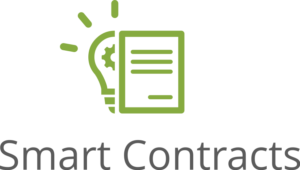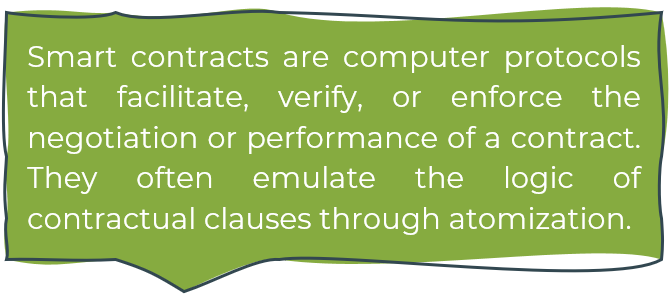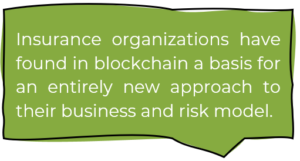

Newsletter ![]() Issue # 3
Issue # 3 ![]() May 2020
May 2020
Welcome to the third BEACON project newsletter!
Learn about the AgrInsurance Meetup that took place in Thessaloniki on the 12th of February.
Discover Smart Contracts and how fintech impacts the insurance industry through Michiel Berende’s, CIO of the BEACON partner Etherisc, interview. Stay tuned with BEACON’s project progress and get to know some of our Lighthouse Customers.
We invite you to regularly view our videos on YouTube, browse the project website which is rich in content and follow us on social media to learn more about our project’s progress and findings.
Don't forget to join us and stay informed on the latest project developments!
Over the past year, BEACON intensively researched and worked on how the use of Earth Observation (EO) data, weather intelligence and blockchain technology can support the development of a robust and cost-efficient set of services allowing the insurance companies to alleviate the effect of weather uncertainty when estimating risk of Agricultural Insurance (AgI) products, reduce the number of on-site visits for claim verification, reduce operational and administrative costs for monitoring of insured indexes and contract handling and design more accurate and personalized contracts.
As a first outcome of the project, the first operational Minimum Viable Product (MVP) of the BEACON toolbox has been developed. A commercial toolbox of services, co-designed and co-created with the AgI providers, that fits to address the sectoral needs.
In particular, BEACON builds on the use of EO data and Weather Intelligence services components, couples them with ICT and blockchain technology facilitating the full exploitation of the BEACON solution and delivering the required services (Crop monitoring, Damage Assessment Calculator, Anti-Fraud Inspector, Weather Risk Probability, Early Warning System).
Throughout the development phase (from user requirements identification to technical development), users have a central role being the cornerstone of the overall development.
BEACON follows the principle of “creating with the users, for the users” allowing the capitalization of existing knowledge of the beneficiaries and Lighthouse Customers (LHC) into the innovative solution that BEACON toolbox meant to be. Based on these iterations of consultations and on partners’ as well as LHCs’ test cases feedback, adaptations have been performed in the initial test bed of the BEACON toolbox.
From business perspective, BEACON extended and focused its efforts on top of the Growth Hacking Strategy and business modelling. Specifically, an extended market analysis has been performed exploring markets outside Europe and the first version of the BEACON Business Plan has been developed including a first pricing model scenario, an early analysis of the findings from direct business validation with potential BEACON LHC, as well as an early cost structure.
Moreover, further Dissemination and Content Marketing activities have been performed in order to strengthen the Growth Hacking activities and follow the needs of the business modelling.
Within the implementation of BEACON, the AgrInsurance meetup aimed at:
Experts argue that the removal of risk through insurance can increase smallholder investment and income by 20 to 30 per cent.
 Smart contracts can be used to decentralise the insurance and reinsurance contracting process, permitting more efficient diversification.
Smart contracts can be used to decentralise the insurance and reinsurance contracting process, permitting more efficient diversification.
Smart contracts are self-executing agreements that are triggered based on predefined and agreed events.
The “smart” element in a smart contract comes from the fact that the clauses in the contract are evaluated and the appropriate code is executed without human intervention. Furthermore, they are based on blockchain and the settlements in them are automatically triggered. This means no need for paperwork and means payouts can be triggered automatically when certain conditions are met.
Conventional agriculture insurance is too expensive for more than 500 million small farmers worldwide and the payments come too long after the incident.
In smart contracts, ease of use is crucial, and the goal is to automate policies already in place and reduce operating costs. Also, the fact that the policies are based on third-parties’ data (e.g. rainfall measured by satellite and ground sensors), means they are objective, thereby avoiding disputes and fraudulent claims.
Moreover, the farmer knows that unbiased devices are measuring and reporting for instance precipitation levels directly to the smart contract through a multi-party consensus oracle that is transparent and distributed.
The blockchain enables trusted transfer and recording of assets without an intermediary. Through smart contracts, blockchain will allow automated claims processing based on processed satellite data, as well as automated and transparent execution of insurance processes like policy issuance, claims verification and payment.
Smart contracts interact with external data “oracles”, to provide a low-cost, index-based crop insurance for AgI firm built on blockchain technology. This function will provide automation and autonomy of time-consuming Insurance contract management processes, accelerating and simplifying transaction processing along with the claims and settlement process between.
 The smart contract function in the case of an event, will execute the contract code, and following the “conditions control check” an automatic payment would be initiated in accordance to the contractual agreement.
The smart contract function in the case of an event, will execute the contract code, and following the “conditions control check” an automatic payment would be initiated in accordance to the contractual agreement.
The smart contract reads the data and acts accordingly. For both the AgI firm and its customers, this acts to guarantee transparency and simplicity, since the related data is present and secure on the blockchain without any action by either party.
 The blockchain components of the BEACON toolbox provide a state-of-the-art way to securely process financial transactions in a multi-party environment. The component manages the policy lifecycle of an insurance policy, providing a full audit trail of all transactions which cannot be frauded or manipulated.
The blockchain components of the BEACON toolbox provide a state-of-the-art way to securely process financial transactions in a multi-party environment. The component manages the policy lifecycle of an insurance policy, providing a full audit trail of all transactions which cannot be frauded or manipulated.
This creates a high level of processual security, transparency and thus trust of all participants in the single source of truth provided by blockchain and smart contracts.
 Blockchain technology made it possible to transfer a digital asset from one person to another without an intermediary. Digital assets could be images, multimedia, text files and of course bitcoin but also fiat currency. When you have the ability to transfer digital assets from one entity to another without an intermediary, you also have the ability to create programs that will execute this function automatically – in effect, programming money. This is what is often referred to as a “smart contract”.
Blockchain technology made it possible to transfer a digital asset from one person to another without an intermediary. Digital assets could be images, multimedia, text files and of course bitcoin but also fiat currency. When you have the ability to transfer digital assets from one entity to another without an intermediary, you also have the ability to create programs that will execute this function automatically – in effect, programming money. This is what is often referred to as a “smart contract”.
Programs can be created that will automatically move money around based on different input such as an external data source like a weather satellite. This can be seen using a very simple insurance process. A smart contract designed for flood insurance could be programmed to automatically send payments to insureds when water reaches certain levels thus eliminating the need for an adjuster.
This is a simple example, but the concept is one that can be expanded to tackle more sophisticated insurance processes like we are working on in BEACON.
 We at Etherisc aim to use blockchain technology to help making the purchase and sale of insurance more efficient, enable lower operational costs, provide greater transparency into the industry and democratize access to reinsurance investments. Blockchain can provide the means to disintermediate the market with a peer-to-peer risk platform that helps insurance return to its roots as society’s safety net. We even envisage new groups building their own bespoke insurance risk pools and services on our platform.
We at Etherisc aim to use blockchain technology to help making the purchase and sale of insurance more efficient, enable lower operational costs, provide greater transparency into the industry and democratize access to reinsurance investments. Blockchain can provide the means to disintermediate the market with a peer-to-peer risk platform that helps insurance return to its roots as society’s safety net. We even envisage new groups building their own bespoke insurance risk pools and services on our platform.
The true achievement of BEACON is that various expertises come together in one consortium called BEACON. Each party is able to solve a part of the puzzle to develop better agriculture insurance solutions for insurers and their clients but independently we won’t be able to solve the puzzle, e.g. Blockchain technology and smart contracts need weather data input and Etherisc is not able to provide this kind of data but now we work together with Agroapps and together we are able to offer the perfect solution.
Along with BEACON, a group of Insurance and Agricultural Insurance sector “Lighthouse Customers” (first users) is growing. They are leading companies of the sector that will be the first to have the opportunity to pilot test the BEACON tool and services in their operational environment.
Please note that due to the coronavirus all events may be subject to cancellations or rescheduling.
Do you want to stay up to date with all the latest BEACON news on development, road-map, team, and funding?
Do you have any questions or would like to get in touch with us to share your insights, feedback or opinions?
Sign up to our mailing list...
Follow us on social media...